1) How is the residency programme in Pakistan structured?
The structure of the Community Medicine (CM) residency programme is spread over 4 years, and it is divided into 3 components that can be completed in any order chosen by the candidate: the Academics and Research components, undertaken at the university, and the Services component, primarily completed at the hospital. Additionally, during the 4 years, residents are involved in teaching activities – in the first year they may teach public health courses to undergraduate students at the university, while in the final year they can already be teaching master’s or PhD students enrolled in courses offered by the Department of Community Health Sciences (DCHS) of Aga Khan University, the one responsible for the CM residency programme. Currently, the department offers 2 Master’s Programmes – one in Epidemiology and Biostatistics, and the other one in Health Policy and Management. Besides looking good on your curriculum vitae (CV), being a teaching assistant helps you strengthen your skills and knowledge. For the Services component, you need to complete 2 to 3 months of clinical rotations in 5 specialities – gynaecology and obstetrics, family medicine, internal medicine, paediatrics and psychiatry. The Academics component prepares you for the Services component and the teaching activities. Particularly, during these four years of residency, we are encouraged to take courses within the master’s programmes provided by the DCHS, free of cost. I, for instance, have attended several courses related to health policy and management, sexual and reproductive health, and epidemiology and biostatistics. This way you gain an in-depth knowledge of different topics which makes you able to teach them to upcoming students. Aside from these courses, the residency programme has its own curricular structure that we follow during the 4 years. This continues in the form of core curriculum modules (11 in all), journal clubs, and core lectures and workshops throughout the training period. Each module is of 4-to-6-month duration and classes take place once or twice a week, enabling us to complete the whole curriculum in the first 2 years of the residency. These curriculum sessions are then repeated during the 3rd and 4th years, ensuring that we are well prepared for the final exam by the time we finish the residency programme. In addition to that, we also complete a 3-to-6-month rotation in each of the 5 sections in which the DCHS is divided: sexual and reproductive health, environmental and occupational health, epidemiology and biostatistics, health systems, and non-communicable diseases. During these rotations, we participate in various research projects being run by that section. Moreover, the Faculty members working in each of these sections facilitate courses related to these areas, teaching us curricular content and enabling field activities, such as visits to primary health care centres, doing outreach clinics, and participating in the rural health programme run by the DCHS in the rural villages. We also take part in workshops in quantitative research skills, including statistical software such as STATA, SPSS, and sometimes R Studio. Depending on your interest, you can extend the length of these rotations. For example, I was interested in learning more about quantitative research and pursuing a career in epidemiology and biostatistics, so my programme director allowed me to spend around 1 year in that section. During that one year, I worked on a national-level data set of the Demographic Health Survey and published a paper in PLoS ONE journal regarding inequalities in the utilization of maternal and reproductive health services by women with disabilities in Pakistan. The Research component involves mainly a dissertation project, which is mandatory to be eligible for the final exam. We start working on the research proposal in the 1st year, which includes applying for ethical clearance, and a lead and a co-supervisor are assigned to each resident. The data collection is usually performed during the 2nd year, followed by the data analysis and the writing of an 80-to-100-page thesis, which after revision by both supervisors should be submitted 6 months before the final exam. My thesis, which I will be finalising until September, focuses on adverse childhood experiences, namely their prevalence and association with mental well-being among students in Pakistan. Other than the thesis, we can also get involved in research projects led by Faculty members within each of the 5 sections of the DCHS. When I was working in the sexual and reproductive health section, I participated in a randomised control trial ongoing at that time that focused on the prevention of maternal and neonatal death/infections with a single oral dose of azithromycin in women in labour (in low- and middle-income countries). It was an internationally funded study by the National Institute of Health (NIH), Washington, DC, USA. Similarly, in the environmental and occupational health section, we worked on a research project focused on solar water disinfection, known as the SODIS method. This is most relevant in rural villages, as people living there often don’t have access to clean water and taking advantage of the hot and sunny weather in Pakistan can be helpful to reduce the incidence of diarrhoea among children under 5 years old. Thus, we came up with an intervention using the SODIS method and made on-field efforts to implement it. By participating in research projects such as these, we learn how research protocols are implemented in real practice, and sometimes we might even be able to analyse the data, write a manuscript, and send it for publication. The common goal is to have at least 2 to 3 publications on your CV by the time you finish the residency. 2) Do have any mandatory or optional internships? Residents need to take at least 2 external placements. Not all residents manage to go on an international placement such as the one I did at ENSP, but placements within the country are also available – we have several nongovernmental organisations, public health organisations, and government agencies. Residents might be placed, for example, at the National Tuberculosis, Polio, or Family Planning Programmes. During the 2 to 3 months in which the placement takes place, residents work according to the organisation or the programme’s objectives. Other than the internship at ENSP I am planning to do a placement at the World Health Organization Country Office in Pakistan near the end of this year. 3) How is the residency programme evaluated? There is a continuous evaluation during the whole residency programme. All the activities we perform are graded and included in the yearly assessments. An overall percentage is calculated for all the academic activities carried out during that year and each component has a weighted score that is counted in the final percentage. There is also a mandatory exam held at the end of every year by the Post Graduate Medical Education Department, the body responsible for all the university residency programmes, and you need to pass this exam to be admitted to the following year. After the completion of the four years of the residency program, a final exit exam is carried out by the College of Physicians and Surgeons of Pakistan (CPSP) that comprises a written as well as a viva component. Passing this exam is essential to getting your post-graduate specialization degree in Community Medicine. 4) Why did you decide to come to Portugal to do an internship? And how did you learn about ENSP? I came to learn about ENSP through the Global Engagement Office of Aga Khan University, which is responsible for organising international exchange programmes and introduced me to the Erasmus exchange programme. This was the first exchange between the two universities, and it is a very nice opportunity for them to build future research and other collaborations. There is a Portuguese resident who will participate in this exchange programme at my university, and next year probably 2 other residents from Aga Khan will come to ENSP. 5) What points can you highlight from your experience in Portugal and specifically from the internship at ENSP? The first and foremost thing is that I got to visit Lisbon. It is a beautiful city, and I enjoyed the delicious pastel de nata! I have made good friends, got a chance to interact with many professors, master’s students, the researchers, and I got to know their ongoing research projects. I visited NOVA University where I was given a comprehensive overview of all the university departments and their research priorities, and we discussed possibilities for research collaborations between NOVA and Aga Khan University. At ENSP, I met public health residents who were super friendly and helpful. I participated with them in an activity that involved watching videos on universal health coverage from the WHO Film Festival, reviewing them, coming up with some reflections and then choosing the top 3. We then sent it forward and some of us attended the main event of the WHO Film Festival. I also delivered an introductory presentation to the 2nd year public health residents about my country, our residency programme, the university, and the health system in Pakistan – how it is organised, managed, and financed, and the main challenges it faces. This was a brilliant idea from Professor Paulo Sousa, as after my presentation there was a productive discussion with the students, and we shared ideas. It was surprising to see that there are many similarities between the health systems of Portugal and Pakistan and the challenges they face. I also presented my thesis project to the residents, and there was a very good attendance and participation from them. As well, the feedback was constructive. Additionally, I visited a primary health care centre in Sete Rios, together with Professor Gonçalo Augusto and a Professor from my university who was here doing an exchange programme, where we were briefed about the health centre organisation and its activities. I was very surprised to see that a nutritionist was working there as well. We also visited the public health unit and the team explained how data was collected through SINAVE, and how COVID-19 surveillance was being conducted in that unit. Other than that, I participated in a research project titled “Urban TB Research Project” with Dr Patrícia Soares from ENSP. I learned skills on descriptive analysis on R Studio with her help, then she gave me access to the data set, and I helped her structure the report and run some basic descriptive analysis. The main objective was to look at the factors that play a role in delaying the diagnosis and treatment of TB patients in Lisbon. Prof Paulo also motivated me to write a review paper, with other colleagues from ENSP, to describe the decentralisation process of the health care systems in both Portugal and Pakistan. This idea came up after my presentation where I described the major decentralisation reform that the health care system in Pakistan went through in 2011. I was then explained that Portugal’s health system had started this process very recently, as the primary health centres have been devolved to the municipalities. Currently, I am working on this. I have as well visited Instituto Nacional de Saúde Doutor Ricardo Jorge, where I met Professor Carlos Dias, the head of the Epidemiology Department. He gave me insights into how I can establish a future in epidemiology and biostatistics, and it was generally a very helpful visit and a good learning experience. 6) Were there any challenges regarding your experience at ENSP? The language was a challenge because I sometimes wanted to participate in research meetings or attend some conferences or workshops, such as journal clubs, and that was generally done in Portuguese. That was a barrier that I could not overcome as my stay in the country was short. Nevertheless, it is a good improvement opportunity if exchanges between both universities keep happening in the future. 7) What would be interesting internship/job opportunities for a Public Health resident/specialist in your country? There might be some opportunities for paid internships in other university departments, but in the Community Medicine Department, the Erasmus exchange programme is the only funded internship through which you can apply as a student at ENSP.
0 Comentários
|
Histórico
Janeiro 2024
CategoriasTudo Constança Carvalho Diogo Martins Gisela Leiras Guilherme Duarte João Mota João Pedro Vieira Maria Moitinho De Almeida Marta Lemos Miguel Marques Paulo Luís |
Contactos
|
Email
newsletter.cmisp@gmail.com |
Twitter
twitter.com/saudemaispubli1 |
Instagram
instagram.com/saudemaispublica |

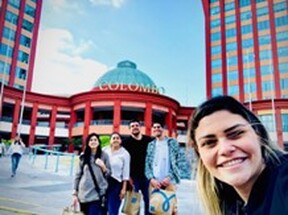
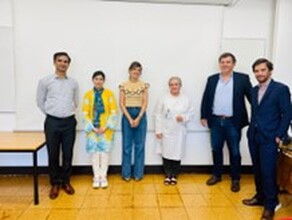
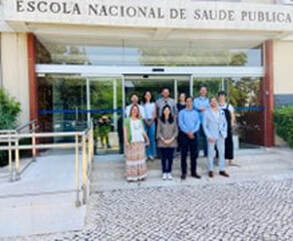
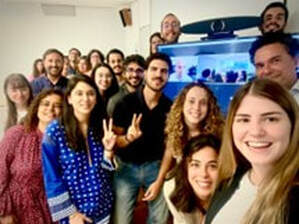
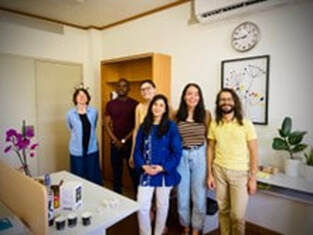
 Feed RSS
Feed RSS